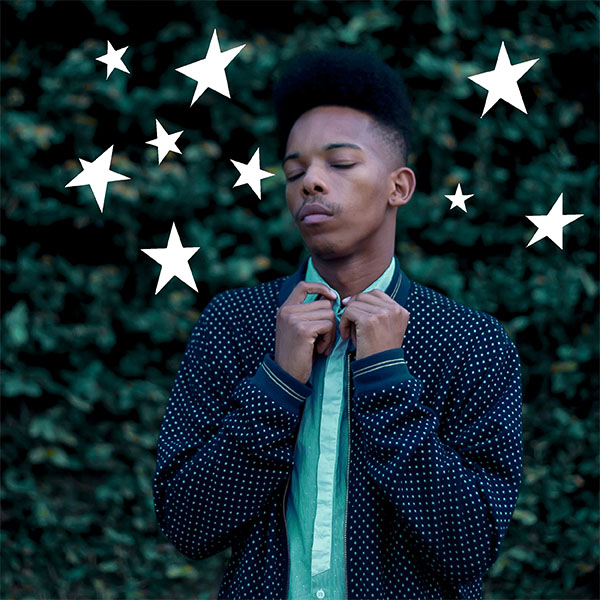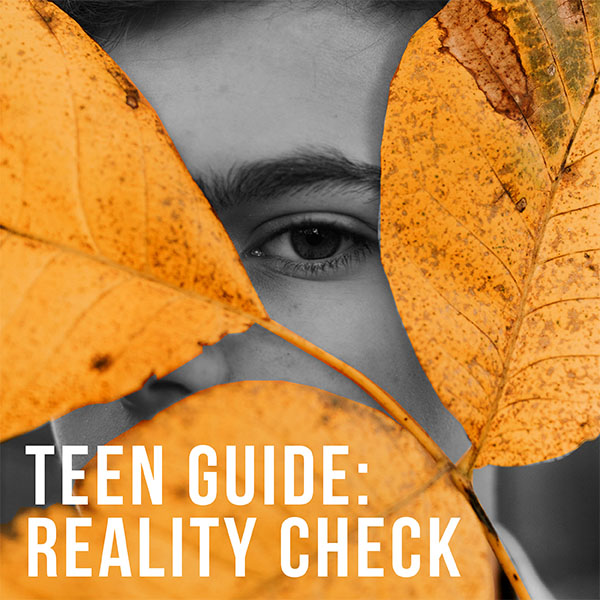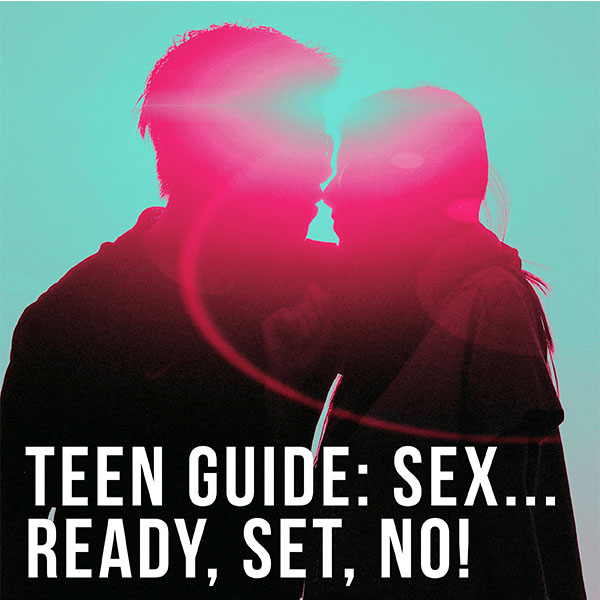
Teen Guides
Your self Series Guides Overview
Your Self Guides cover specific topics in greater detail while maintaining focus on the development of the self: Who am I in regards to the topic at hand? They reinforce the work of the YSS program – exploring and building a positive sense of self – although no prior use of the YSS program is necessary.
The Guides are written to the student in an informal, conversational tone and the text contains self-reflective questions throughout. Students work through the Guides on their own while the facilitator’s Guide offers discussion prompts. Group discussion is optional; the Guides stand alone without need for group discussion, but it is always encouraged should time allow. Keep in mind that a student, on average, would need two hours to complete a Guide.
Of note, the Guides are a private and personal journey. Teachers are not to read the students’ Guides or assess their students on their answers. If assessment is needed, discussion questions can be used for separate essay writing
- No prep work is required for the facilitator.
- Students read and answer the questions on their own.
- Class discussions based on the material are optional.
- Approximately two hours are needed to complete each Guide without discussions.
Below is an introduction to the two Guides currently sold.
Your Self Guide: Reality Check
Overview
Your Self Guide: Reality Check takes high school students on a journey of self-discovery by focusing on their thoughts and the daily routines that are shaping their developing self concepts. By spurring awareness, teens are motivated to begin to think about how their thoughts are creating their experiences. The Guide maintains focus on students’ developing self-concepts and continues to help them to manage their lives so that they can better express who they choose to be. Directions to the students are straight forward: read and answer the questions throughout. Students are then asked to return to their answers two weeks post reading to explore how their mindsets have shifted.
An excerpt from Reality Check and the table of contents are below.
1. Your Unique Self….:
….The teen years represent a massive time of biological change. During any time of change, we can make good decisions or bad decisions depending on the circumstance and on how we feel about who we are. Teens (that means you) are figuring out who they are as they are separating from their families, craving risky behavior, undergoing massive brain changes and experiencing hormone fluctuations like never before. Meanwhile, adults either mock you, support you, fear you, label you, love you, or show other responses depending on the adult. And you respond to those responses in a big cycle of emotional, physical, cognitive and social change and growth. No wonder teens report higher stress levels than adults! Furthermore, you can’t help the changes you are experiencing because they are biological and everyone has a unique experience. What you can do is (drum roll…)
- Become aware of what’s happening to YOU.
- Respond to changes in a way that supports your amazing development.
Have you thought about the changes you are likely going through?
__ It’s practically shoved down my throat at school and home, thank you.
__ Yeah, it’s been mentioned a few times so I’ve considered it.
__ Maybe I’ve heard about these changes, but I don’t think too much about them.
__ Me changing? No way.
This Guide is supposed to provide insight into who you think you are on a very basic level. Why is that important? Why are you even taking the time to do this right now when you have a ton of chores or could be studying ancient Mesopotamia? Because knowing who you are is the most supportive and strongest foundation you can create to prepare you for life, to ward off mental health issues (that plague teens at a 50% rate), and to help you actually feeeeeel like you can manage whatever comes your way. Including that big ball of stress chasing you around! So, yeah, it’s kind of …. critical to your health and wellness to know who you are.
That’s why schools are taking the time out of regularly scheduled programming (academics) to do things like this – because they know how important it is for you to be able to discover, manage and express who you are.
Table of Conents
- Your unique self….
- Self-sabotaging behavior…
- Mindsets
- Toxic bombs on your self-concept…
- Who pushes your buttons?
- Recognize your responses…
- Build Your Brain
- Depression
- Anxiety
- Conclusion
- So far, so good
- So what can you do?
- The list
- Examine your health
- Final thoughts
Your Self Guide: Sex...Ready, Set, No!
Overview
Your Self Guide: Sex: Ready, set, No! explores students’ thoughts on nearly everything related to sexuality. The aim is to foster proactive measures in regards to decision-making around sex. This Guide is intended for middle and high school students, but you are the best judge on when this topic is best introduced to your student population. Below is an excerpt followed by the table of contents.
An excerpt from Your Self Guide: Sex: Ready, set, No! and the table of contents are below.
SEXion 1: Think about It…
….You will also read about intimacy and foreplay. These are things that lead up to sexual activity and include kissing, touching, experimenting and exploring another person’s body with hands, tongue, nose, whatever. (Yes, masturbation is discussed as well.) So, if you are kissing, hugging or just dreaming about any of those things right now, it’s not such a bad idea to think about how you feel about sex now.
You can just keep saying sex in your mind until you are comfortable with it: Sex, sex, sex, sex.
Why not just write it here for kicks: ______
Great. Now we can move on. Penis. Vagina. Period. Anus. Scrotum. Erection. Sperm. Vulva. Yes, these are some things you will read about. You will also read about frogs, fondling and fooling around. Fabulous.
Can you add a few words to that list: ___________________________________
Sex is part of life. Heck, it is the creation of life. So, it is not to be taken lightly, yet it is also a wonderful experience between two people who care deeply for each other. Unless they don’t and it’s just a sexual thing. That happens too. This guide is intended to help YOU determine what YOU feel is best for you. The way YOU feel about your own personal sexuality and your sex life is completely, one hundred percent, absolutely, without a doubt, your business. No one else’s. And how your neighbor or your best friend or worst enemy feel about sex is not your concern either. Thank goodness. What is your concern, is becoming aware of and comfortable with the entire concept of SEX – what leads up to it, what it entails, how you feel about it, and so on!
How have you learned about sex in the past? (Check all that apply.)
- ___My parents (as in, sit-down-we-need-to-have-a-chat, talk).
- ___Books, magazines
- ___Videos or Internet.
- ___Friends who really knew what they were talking about.
- ___Friends, who, maybe in hindsight, had no idea what they were talking about.
- ___Another family member.
- ___TV shows.
- ___Other: ______________________________________
Sex is a big topic. Lots of people have sex (hence the billions of people in the world) and lots of people have different opinions about just what sex really is – from romantic to wild fantasy-fulfilling to even just straight forward traditional sex. Sex can make you feel on top of the world or in a deep dark nightmare (like in the cases of sexual assault or sex that you regret). One purpose of this Guide is to help you to have positive feelings, attitudes and experiences when it comes to sex.
When you think of sex, how do you feel? For example, do you feel embarrassed, scared, excited, curious, anxious, happy, disgusted….? List some feelings here: __________________________________________________________________
Table of Contents
- SEXion 1: Think about It…
- SEXion 2: Puberty 101
- SEXion 3: Gender Differences
- SEXion 4: Communication Is Key!
- SEXion 5: Foreplay & Your Brain
- SEXion 6: Are You Ready?
- SEXion 7: It’s Your Body-Get To Know It
- SEXion 8: Consent: He Said, She Said
- SEXion 9: Sex Is Up To You
- SEXion 10: Conclusion




